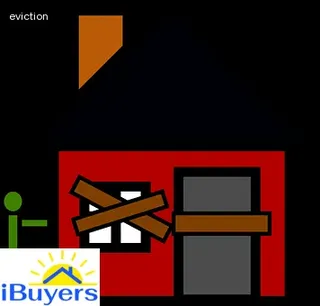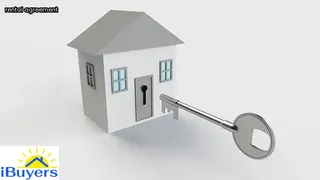Eviction is a legal process used by landlords and property managers in Delaware to remove tenants from their rental unit for any number of reasons. Understanding the eviction process in Delaware is critical for both landlords and tenants.
First, the landlord must provide a written notification to the tenant, which outlines the reason for eviction and specifies how much time they have to vacate the property. If the tenant does not comply with this notification, the landlord can then file an unlawful detainer lawsuit with the court.
Once filed, a hearing will be held before a judge who will review both sides of the case and make a final determination. During this hearing, it's important that both parties understand their rights and responsibilities under Delaware law.
After making their decision, the judge may issue an order requiring that either party pay certain costs or fees associated with the eviction process as well as any damages owed. Finally, if all else fails, sheriffs may be called upon to physically evict tenants from their rental units.
It is important that landlords and property managers follow all steps of this process carefully in order to ensure compliance with Delaware law.

Eviction in Delaware is a legally complex process and one that should only be undertaken when absolutely necessary. The most common reasons for evicting a tenant in Delaware include nonpayment of rent, violating the lease agreement, engaging in illegal activity on the property, creating a health or safety hazard, failing to vacate after the expiration of the lease agreement, and damaging property.
Tenants also may be evicted if they are considered a nuisance to other tenants or neighbors. In some cases, landlords may evict tenants due to renovations or repairs that require them to vacate temporarily.
No matter what the reason for eviction is, landlords must follow all legal protocols or risk facing fines or having the eviction overturned in court.
Filing a complaint to initiate an eviction in Delaware is a process that requires landlords and property managers to go through several steps. It's important to understand the local statutes that govern the process in order to ensure legal compliance as well as a successful outcome.
To begin, the landlord or property manager must create an eviction complaint form outlining the reasons for eviction and provide it to the tenant. This form must be filed with either the Justice of Peace Court or District Court, depending on the circumstances.
Once the filing has been accepted, a copy of the complaint must be served to the tenant in person or by mail. Landlords may not simply post the document on their door or otherwise attempt to evade service.
After service has been successfully completed, tenants are then given a period of time (usually between five and ten days) to respond before any further action can be taken by either party. Following this period, hearings may ensue if necessary, leading up to a potential judgement from a judge or magistrate when appropriate.

In Delaware, landlords and property managers are required to provide tenants with a written eviction notice prior to the commencement of the eviction process. The eviction notice must be served in person if possible, or via certified mail if not.
The eviction notice must include the reason for the eviction (e. non-payment of rent, breach of lease agreement, etc.
), specify any outstanding amounts owed by the tenant, and provide a deadline for when the tenant must vacate the premises (which must be at least 15 days after service of the notice). It is important for landlords and property managers to make sure that all tenants receive an eviction notice in accordance with Delaware law; failure to do so may result in delays in or even dismissal of their cases.
When it comes to the Delaware eviction process, serving the tenant with an eviction notice is a critical step. Landlords and property managers must ensure that they are following both state and local laws when issuing a notice of eviction.
Depending on the situation, the notice should include specific reasons for why the tenant is being evicted as well as information about what they need to do in order to avoid eviction. The eviction notice must be delivered to the tenant in person or sent via certified mail with return receipt requested.
Furthermore, it is important that landlords and property managers provide proper documentation of service such as a signed affidavit or proof of delivery. It’s also important for landlords and property managers to make sure that any documents regarding the eviction be kept on record in case legal action is taken.

When a landlord or property manager has served the tenant with their eviction notice, they must ask for possession of their property. In Delaware, this can be done in two ways.
First, the landlord could file an action for immediate possession with the court and prove that the tenant has failed to comply with the terms of their lease agreement. Alternatively, they may also file an action for restitution of the premises, which requires them to provide evidence that no rent is owed and that the tenant is occupying the property unlawfully.
If either action is successful, then a writ of possession will be issued by the court ordering the tenant to leave within twenty-four hours. In addition to this step, landlords and managers should also follow up with a formal demand letter asking for possession and informing occupants that they must vacate within three days or face further legal action.
This process helps ensure a successful outcome while protecting both parties’ rights throughout the eviction process.
The Delaware eviction process requires that landlords and property managers serve tenants with an eviction notice before they can obtain possession of the property. The first step is to download and fill out the appropriate form from the court's website, which will include a summons.
Once these forms are completed, they must be served on the tenant either in person or through certified mail. It is important to note that any attempt to evict a tenant without following the proper procedure could result in legal action against the landlord or property manager.
After the summons has been served, if the tenant does not move out within three days, then the landlord can proceed with filing an eviction complaint with the court. Once this is done, a hearing will be scheduled in order for both parties to present their cases before a judge.
If all goes as planned, then at this hearing, the judge may issue a judgment ordering that possession of the property be given back to its original owner.

When it comes to evictions, Delaware is no different from any other state. The Delaware eviction process follows a specific timeline that must be followed in order to legally evict a tenant.
It's important for landlords and property managers to understand the legalities of the eviction process in order to protect their rights and those of their tenants. The timeline starts with providing a written notice, typically 30 days, to the tenant informing them of their impending eviction.
If the tenant does not comply with the notice, then the landlord can file an Unlawful Detainer action with the local court system. After filing, there is a waiting period of five days before a hearing can take place.
During this period, the tenant has an opportunity to contest the eviction or reach an agreement with the landlord. If all goes well at the hearing and the court rules in favor of the landlord, then a Writ of Possession will be issued by the court which allows for law enforcement officers to remove any remaining occupants from the premises.
Finally, if necessary, landlords may use a bond that was posted on behalf of their tenant as payment for damages or unpaid rent due as part of ending tenancy agreement. Understanding Delaware's eviction timeline is essential for landlords and property managers looking to navigate through this complex process successfully.
When it comes to demonstrating evidence in court during an eviction hearing, it is important for landlords and property managers in Delaware to understand the applicable laws. During an eviction case, a landlord must prove that the tenant has violated their rental agreement or rental law.
To do this, the landlord must provide evidence such as payment records, notices of violation, witness statements or testimony, and any other relevant documentation. Landlords should also be prepared to answer questions from the judge regarding their case.
If the landlord fails to provide sufficient evidence to support their claim, they may risk losing the eviction case. It is essential for landlords and property managers in Delaware to be aware of all legal requirements when presenting evidence during an eviction hearing so they can protect their interests and maximize their chances of success in court.

The eviction process in Delaware can be daunting for landlords and property managers, but there are a few resources available to help you prepare your case. Several websites offer free downloads that provide guidance on how to evict a tenant in the state, from forms and notices to court filings.
These documents may include information such as timeframes for filing an eviction notice, legal requirements of the landlord or property manager, the tenant's right to contest an eviction action, and more. Additionally, some of these downloads offer sample letters and other useful tips on how best to proceed with an eviction case.
With these helpful materials at your fingertips, you will be better prepared when it comes time to go through the formal eviction process in Delaware.
In Delaware, it is important for landlords and property managers to understand the eviction process. Knowing what resources are available to help with the preparation of an eviction case can be essential for a successful outcome.
The first step is to access the relevant information from the Delaware Courts website, which includes guidance documents and forms such as a summons and complaint. Additionally, there are online services that provide detailed instructions and helpful legal advice on how to file an eviction in Delaware.
Landlords should also consult their local county or city clerk's office for specific rules or regulations that may apply in their area. For more complicated cases, it might be beneficial to hire an experienced attorney who specializes in landlord-tenant law or eviction proceedings in Delaware.
Finally, landlords may benefit from joining community organizations, such as rental associations or tenant unions, which often offer support through workshops and seminars on the eviction process.

If you are a landlord or property manager in Delaware and need to file an eviction complaint, you must be aware of the relevant legal documents that can help you through the process. The first step is to research the Delaware Code and Title 25 which provides detailed information on the rights of tenants and landlords.
Additionally, it outlines all rules and regulations governing evictions in Delaware. It is important to familiarize yourself with all applicable laws before commencing any eviction proceedings.
In addition to the Delaware Code, landlords may also want to become aware of other documents that are available for use during an eviction case such as sample forms, complaint templates, and other resources from local courts or government websites. Landlords should take note that each county may have different requirements for filing an eviction complaint depending on the county’s specific guidelines.
By researching the necessary legal documents prior to filing an eviction complaint, landlords will be able to determine if they meet all criteria for their particular case and feel confident in their understanding of how the process works.
The eviction process in Delaware is complex and can be confusing for landlords and property managers. Understanding the laws, rules, forms, and procedures of Delaware evictions is essential for ensuring a successful eviction.
Fortunately, this comprehensive guide provides insight into important information to help navigate the eviction process in Delaware. Landlords and property managers should familiarize themselves with the official forms required by courts as well as the notice requirements that must be followed.
Additionally, they should know what reasons are legally accepted for terminating a tenancy as defined by state law. Moreover, understanding how to complete the court filing process correctly and when to use a professional process server can save time and money.
It's also important to understand how quickly an eviction should move through the court system in order to keep rental income flowing uninterrupted. All of these elements are integral to making sure your Delaware eviction goes smoothly and efficiently.

The Delaware eviction process can be a lengthy and complicated experience for landlords and property managers. It is important to understand the full timeline of the process so that you are prepared for any delays that may arise.
Generally, an eviction in Delaware takes around two months from start to finish, however, some cases may take longer due to unique circumstances. This timeline includes the time required to serve notice, file a complaint with the court, file the sheriff’s return of service, obtain a hearing date, attend the hearing and obtain a writ of possession.
To make sure you follow all applicable laws and regulations and your rights are protected throughout this process it is wise to consult with an experienced attorney familiar with Delaware landlord-tenant law. Once a judgment is entered in favor of the landlord or property manager they must also wait for the sheriff’s office to enforce the writ of possession before they can legally remove tenants from their property.
Although each case varies, understanding this timeline will help landlords and property managers successfully navigate through any potential delays.
If you're a landlord or property manager in Delaware, DoorLoop is the perfect tool for streamlining your eviction process. Put your portfolio on DoorLoop and save time by having all of the documents you need to pursue an eviction stored in one convenient location.
Instead of maintaining paper copies, you can quickly and easily access electronic versions right from the app. You can also use DoorLoop's online forms to generate notices and legal filings, eliminating paperwork while still ensuring accuracy.
Plus, when it comes time to file a complaint in court, DoorLoop's automated filing service will help you submit the documents accurately and on time. With DoorLoop's streamlined eviction process, landlords and property managers in Delaware can save time and hassle while protecting their rights as owners.

DoorLoop is an automated solutions provider that can help landlords and property managers optimize their business processes. Their platform provides a comprehensive suite of tools for managing all aspects of the eviction process in Delaware, from filing paperwork and processing payments to tracking progress and staying up-to-date with changing laws.
With DoorLoop, landlords and property managers can save time and money by streamlining the entire eviction process. Additionally, they have access to on-demand customer support, so they can get the help they need when they need it.
Requesting a demo of DoorLoop's automated solutions is an easy way to learn more about how the platform can simplify your Delaware eviction process. With DoorLoop's automation capabilities, you can rest assured knowing that your business operations are running smoothly and efficiently.
In today's digital world, technology can be used to speed up and simplify the Delaware eviction process. Automating the paperwork and communication between landlords, tenants, and property managers is an efficient way to streamline the process.
Online tenant screening tools can help to quickly verify information such as credit reports, references, and employment history. Digital documents eliminate the need for cumbersome physical copies of contracts and forms, while automated rent collection tools make tracking payments easier.
Additionally, online rental marketplaces give property managers access to a larger pool of potential tenants in order to quickly fill vacancies. By leveraging technology, landlords and property managers can accelerate the Delaware eviction process significantly.

Signing up for DoorLoop Solutions can be a great way to streamline the Delaware eviction process for landlords and property managers. It is important to understand what is required when signing up, as this will ensure that the process goes smoothly.
The first step is to create an account with DoorLoop Solutions, which provides access to their online platform. This platform allows landlords and property managers to easily track tenants, store paperwork, and send notifications in accordance with state laws.
Additionally, DoorLoop Solutions offers resources such as legal templates, pre-filled forms, and more to make the eviction process simpler and more efficient. By having all of your documents in one place, you can rest assured that you are complying with all relevant regulations throughout the entire eviction process in Delaware.
Automation is an increasingly popular tool for property managers and landlords to streamline their operations and make the Delaware eviction process faster and more efficient. Automating some of the steps involved in property management can help save time, reduce human error, and improve accuracy.
Utilizing automation technology can provide numerous benefits, including increased efficiency when it comes to tenant screening, rent collection, documentation processes, tenant communication and tracking of lease agreements. Property managers must also understand the relevant laws surrounding eviction procedures in Delaware before moving forward with any automation initiatives.
By understanding the legalities that govern how evictions are handled in Delaware, property managers can ensure that automated processes are compliant with state laws. Automating certain parts of the Delaware eviction process is a great way to speed up this often laborious task and make sure everything runs smoothly.

DoorLoop is the perfect solution for busy landlords and property managers looking to save time and make more money in the Delaware eviction process. Their automated system helps streamline a range of tasks from tenant communication to court filings, allowing you to focus on growing your business.
DoorLoop quickly identifies all required documents, automatically completes paperwork, and submits everything for a fast resolution. With DoorLoop's cutting-edge technology, landlords and property managers can rest assured knowing their legal cases are handled with accuracy and speed, resulting in maximum returns on their investments.
DoorLoop also offers convenient features such as integrated messaging tools that allow users to communicate with tenants directly from the platform, saving valuable time. Additionally, users can use real-time analytics to track progress on multiple cases at once.
With DoorLoop’s automated solutions, landlords and property managers will be able to maximize profits while minimizing their workloads.
In Delaware, there are certain steps that must be taken to stop an eviction. It is important for landlords and property managers to be familiar with the Delaware eviction process in order to effectively prevent an eviction from occurring.
The most important step in stopping an eviction is communication. Landlords and property managers should communicate with tenants as soon as possible when issues arise and make sure to document any conversations that take place.
Additionally, it is important for landlords and property managers to stay up-to-date on rental laws and regulations in Delaware, as these can affect the possibility of stopping an eviction. Tenants also have rights under Delaware law, so it is important for landlords and property managers to remain aware of these rights when attempting to stop an eviction.
Finally, if all else fails, a landlord or property manager may attempt to come up with alternative solutions such as allowing a tenant more time to pay their rent or offering rent concessions in exchange for fewer late fees. Following these steps may help landlords and property managers stop an eviction from taking place in Delaware.

Eviction can stay on your record in Delaware for several years and even longer if not properly addressed. In Delaware, the eviction process begins with a 3-day notice to the tenant to vacate or pay rent.
If the tenant fails to comply, then the landlord must file an eviction suit in court. After that, the tenant will receive a writ of possession from the court which allows them 10 days to vacate before they are evicted.
If that time passes without resolution, then a sheriff will come and forcibly remove any remaining tenants and their belongings. Once an eviction is completed, it will remain on both the tenant’s and landlord’s records for up to seven years, depending upon how it was filed through the courts.
Additionally, landlords should be aware that some credit bureaus may report evictions for up to 10 years after they occurred. Therefore, it is important for landlords and property managers in Delaware to familiarize themselves with the eviction process and understand how long an eviction can remain on their record.
In Delaware, the eviction process is quite straightforward once a tenant has been served with an eviction notice. Once the notice has been issued, the tenant has 10 days to vacate the premises.
If they do not move out within 10 days, then the landlord can file a complaint with the court and pursue legal action to force them to move out. The court may also order an immediate evacuation of the property if necessary.
In some cases, tenants may be given additional time to move out if they are able to negotiate an agreement with their landlord or property manager. Ultimately, it is important for landlords and property managers in Delaware to understand the eviction process and ensure that tenants receive proper notification before taking any legal action.
The eviction process in Delaware can be a lengthy one and the amount of time needed to complete the full eviction process can vary depending on several factors. Landlords and property managers must follow specific steps when evicting a tenant in Delaware.
Generally, it takes about 60 days from start to finish for the eviction process in Delaware. This timeline may be extended if the tenant contests the eviction or if other legal issues arise that delay proceedings.
It is important for landlords to understand all of the steps involved in order to ensure they are following proper procedures and filing appropriate paperwork with the courts in a timely manner. By understanding the entire process, landlords can better manage their expectations throughout and be better prepared for any delays that may occur along the way.
A: The Delaware Landlord Tenant Code provides a comprehensive guide to the eviction process in Delaware. Generally, this process can take anywhere from one to six months, depending on the specific circumstances of the eviction.
A: The eviction process in Delaware can vary depending on the situation, but typically it takes about two weeks to complete the legal proceedings.
A: Serving an Eviction Notice in Delaware typically takes 3 to 5 days, depending on the circumstances. The notice must be properly served according to the law and given in person or by posting a copy at the rental property.